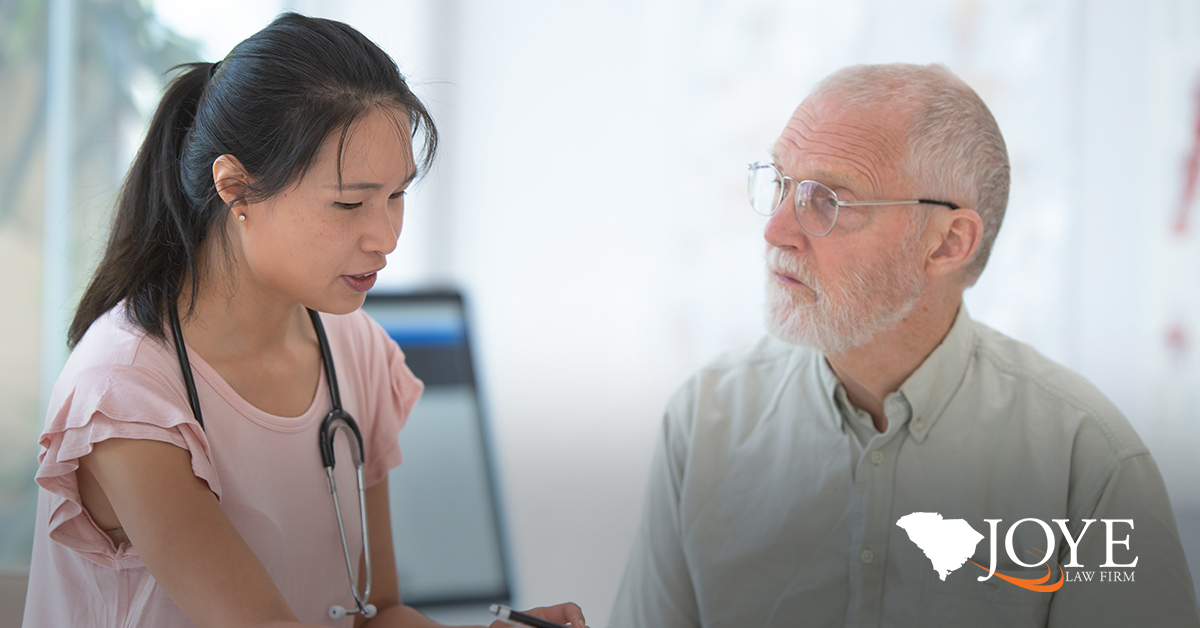
While a serious accident is over within seconds, the serious injuries you suffer in that moment will last much longer your injuries will need treatment, often for a long time afterward, and possibly, for the rest of your life. Car crashes, workplace incidents, slip and falls, and other personal injury accidents may cause long-term injuries that require costly medical care. This leaves many victims worrying about how those medical bills will get paid.
The good news is that you may receive compensation your medical bills through a personal injury claim. The bad news is you won’t receive the funds right away. This means your health insurance will initially need to step in to cover your expenses.
If you have Medicaid, you may wonder how coverage works after an suffering an injury that wasn’t your fault. How can it impact your claim against the at-fault party? Learn how this process works and why a personal injury attorney from Joye Law Firm can help maximize your settlement.
Does Medicaid Cover Car Accident Injuries?
If you’re injured in an accident, you’ll rely on your Medicaid coverage for healthcare costs. This includes emergency room visits after a car crash to follow-up doctor appointments, physical therapy, and pain medications.
Once Medicaid has paid for your initial medical costs related to the injury, it might seek reimbursement through subrogation. This legal process allows Medicaid to claim a portion of your personal injury settlement by placing a medical lien on it. This means the healthcare expenses paid by Medicaid will be deducted from your settlement before you receive the remaining funds.
Government-funded insurance like Medicaid can be advantageous for your settlement. Medicaid covers medical services at significantly reduced rates. You might end up paying less for those services than you would have as an uninsured individual or with private insurance coverage.
How to Handle Medical Bills While Your Personal Injury Lawsuit Is Pending
While waiting for your claim to resolve, you can and should file your medical bills with your health insurance or Medicaid policy. If you are waiting to pay your bills until you receive compensation, your medical bills could be sent to debt collectors and damage your credit rating, even if you intend to pay later.
Talk to the healthcare provider and ask them to file the bill with Medicaid. If the healthcare provider tries to argue that Medicaid can’t be used to pay for accidents, they are wrong. Don’t let them strong-arm you into forgoing using Medicaid when you are eligible.
If you use Medicaid to pay for medical expenses after an accident, you must report it to the Centers for Medicare & Medicaid Services Benefits Coordination and Recovery Center.
What Happens After Medicaid Pays My Accident Medical Expenses?
Under South Carolina law, you cannot receive compensation twice for the same accident. In this case, you can’t get money from Medicaid and later from the at-fault party’s insurance. After Medicaid is paid back from the settlement (and any other fees, such as lawyer fees, are subtracted), the remaining amount will be issued to you.
When you get your settlement check, all your medical bills and liens will already be paid. This means you don’t have to worry about paying off your medical debts on your own.
Legal Rights and Medicaid
Medicaid beneficiaries have certain legal protections in cases of accidents, specifically related to fees and liens on their settlements. These protections ensure they’re treated fairly and can access the money they need. These protections include:
- The right to receive detailed billing statements for medical services covered by Medicaid.
- The right to challenge or dispute any charges they believe are incorrect or unjustified and file an appeal.
- The right to legal representation when disputing Medicaid liens on their personal injury settlements.
- The right to seek a reduction or waiver of Medicaid liens under certain circumstances, such as financial hardship.
- The right to be informed about how Medicaid liens might affect their settlement and overall recovery process.
Role of an Attorney in Medicaid-Related Accident Claims
Medicaid-related claims from accidents can be complex. At Joye Law Firm, our experienced attorneys are ready to assist you. We have decades of experience handling medical liens and maximizing settlements. Here’s how we can support you:
- Identification and Documentation: We can identify and document all medical expenses covered by Medicaid. This ensures a comprehensive overview of costs eligible for reimbursement, setting a clear foundation for your claim.
- Handle Subrogation Issues: We are experienced in dealing with the complexities of subrogation. We can help you address Medicaid’s reimbursement claims, protecting your interests throughout the process.
- Negotiate Your Liens: Our team can negotiate with Medicaid to reduce your liens and maximize your net settlement amount. This can help you keep more of your compensation.
- Compliance Assurance: We can assist in making sure your liens are paid in compliance with the law. We will help you avoid any penalties or delays in receiving your settlement. Our knowledge of legal requirements helps streamline the settlement process for you.
After an Accident, Call Joye Law Firm
Don’t let medical expenses associated with an accident overwhelm you. Since 1968, the South Carolina personal injury attorneys at Joye Law Firm have fought for the rights of injured victims. We are standing by to help you receive compensation for your medical bills and for the pain and suffering you experienced due to another’s negligence.
Contact our team today. At Joye Law Firm, we ensure that accident victims have access to legal representation without upfront costs. Your first consultation with us is free, and you won’t owe us a dime unless we secure a financial settlement for you.
Originally published October 5, 2020. Updated April 1, 2024.






































